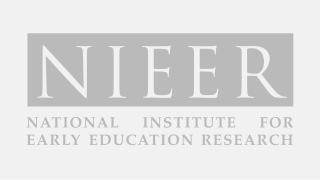
New Research
Our latest research delves into the new, cutting-edge investigations and studies conducted to explore, expand, and deepen our understanding of various aspects of early childhood development, education, and care.
We're currently at the research forefront of a wide range of topics, including but not limited to child development, curriculum design, teaching methodologies, program effectiveness, parent engagement, policy analysis, equity and inclusion, technology integration, and the impact of early childhood experiences on lifelong outcomes. Our latest research will help pioneer new evidence-based practices, policies, and interventions that support young children's optimal growth, learning, and well-being, ensuring a strong foundation for their future success.
Featured Research
In this study from NIEER, authors Milagros Nores and Steve Barnett analyzed early childhood interventions from 23 countries and found substantial cognitive, behavioral, and health benefits as well as schooling outcomes that were sustained over time. The authors also found that the combination of education and nutritional assistance seems to be more powerful for improving child development over nutritional assistance alone.

Latest From NIEER

Evaluation Support for Dual Language Learners
New research in the field of Early Childhood Education (ECE) refers to the latest, cutting-edge investigations and studies conducted to explore, expand, and deepen our understanding of various aspects related to early childhood development, education, and care
New research in the field of Early Childhood Education (ECE) refers to the latest, cutting-edge investigations and studies conducted to explore, expand, and deepen our understanding of various aspects related to early childhood development, education, and care.
Early childhood educators can benefit from blog posts that offer practical tips, innovative teaching methods, and strategies for classroom management. Blogs can contribute to ongoing professional development and continuous improvement in teaching practices.


